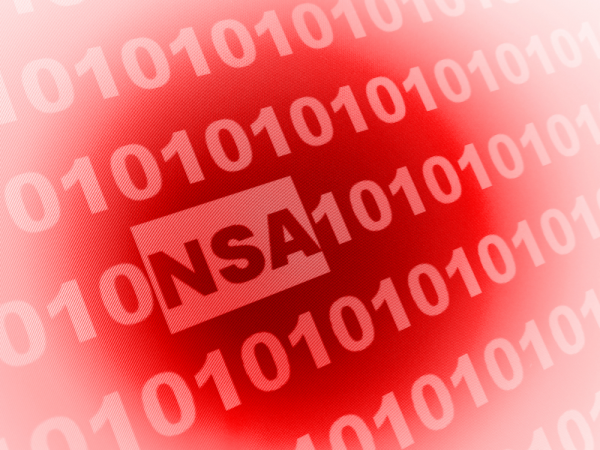
Unless you have been living under a rock for many months, you couldn't help but be aware of the activities of the NSA. They certainly knew what you were up to, even when you were hiding under that rock. Campaigners have been calling for reform ever since Edward Snowden blew the lid off previously secret surveillance of telephone calls and web activity of millions of users in America and around the world. In an address at the Justice Department, President Obama gave details of some reforms to surveillance, but at the same time remained defensive of the National Security Agency.
Referring to surveillance (or spying, if you will) carried out in the 1960s, Obama said: "In the long twilight struggle against communism, we had been reminded that the very liberties that we sought to preserve could not be sacrificed at the altar of national security". The speech continued, making the obligatory nods to terrorism, "weapons of mass destruction" and September 11th; all very emotive stuff. This heartstring tugging was cited as the reason the intelligence community in general -- including the NSA -- needed to up its game. They "suddenly needed to do far more than the traditional mission of monitoring hostile powers and gathering information for policymakers."
But for all of the justification given for the actions of the NSA et al, Obama used his speech to hold his hands up to the "more pronounced... risk of government overreach" and admits to having been opposed to "several practices, such as warrantless wiretaps". He freely admitted that intelligence agencies had access to a "powerful tool", whilst conceding that "collection and storage of such bulk data also creates a potential for abuse".
He almost boasted that "the power of new technologies means that there are fewer and fewer technical constraints on what we can do" -- seemingly failing to understand that this is precisely what people take issue with. Snowden was name-checked, albeit in passing: "I'm not going to dwell on Mr. Snowden’s actions or his motivations". Obama did voice his disapproval of the revelations, indicating that he thought that they revealed US methods to adversaries.
But it would be hard to ignore the fact that there is a trust issue that needs to be worked on. US citizens are understandably upset that phone activities have been indiscriminately logged, and it seems absurd that the NSA is collecting far, far more data than it can sift through and make use of. Obama used the speech as a self-congratulatory tool, repeating assurances that the NSA was only interested in national security and that work was already underway to make reforms to the way the organization works.
But, unsurprisingly, the reforms go nowhere as far as many people would have wanted. It was obvious that this would be the case before the speech was even made, but when caveats are announced ahead of news of reform ("We cannot prevent terrorist attacks or cyberthreats without some capability to penetrate digital communications, whether it’s to unravel a terrorist plot, to intercept malware that targets a stock exchange, to make sure air traffic control systems are not compromised or to ensure that hackers do not empty your bank accounts"), you know things are going to be disappointing.
Obama also attempted to humanize the NSA -- "the NSA and other intelligence agencies are our neighbors. They’re our friends and family" -- but this was just an exercise in softening up before the real meat of the speech was delivered. So what’s on the agenda? Annual reviews of what the intelligence agencies are doing. One would hope that in the fast-paced world of tech, things would be reviewed more frequently than this anyway. A promise of greater transparency is an empty gesture. It means nothing. We will still only be told what the US government wants to share, which essentially amounts to little or no change.
One vaguely promising proposal is that an independent third party will be called on to participate in "significant cases" in the Foreign Intelligence Surveillance Court. But there are problem here. Who decides which cases are deemed significant enough to warrant the involvement of these third parties? And who chooses them? How independent are they really? Data collected about communications between US citizens and those in other countries in certain circumstances will be restricted, but who will police this? Obama also promises that the secrecy surrounding "national security letters" demanding information from companies will be reduced and "more information" will be made available to the public... although it's not quite clear exactly what this actually means in practice.
In reference to the bulk collection of bulk telephone metadata, Obama waxed lyrical about the importance of such a program. A new program will be implemented -- at an unspecified time -- that "preserves the capabilities we need without the government holding this bulk metadata". What this means is that phone companies or third-parties will retain the data and will have to hand it over to the government on request. Plus ça change, plus c'est la même chose.
What has been promised is that only phone calls that are two steps removed from numbers associated with known terrorist organizations will be parsed; at the moment, three stages of removal are deemed permissible. Obama also made the rather empty announcements that he was ordering the development of new techniques that produce the same results as the current program, but without the need for the government to retain metadata.
But the question that needs to be asked is, will anything actually change? It may be that the reforms that have been announced do not go anywhere near as far as many wanted and hoped for, but how will we know if the smaller changes that have been announced are actually implemented? The world went for years living in blissful ignorance about the activities of the NSA. Is the leopard really likely to change its spots overnight? Whether things remain precisely as they are, or change even slightly, it is very unlikely that we'll ever really know what's going on. The NSA and other government agencies have already lost the trust of America, and indeed the world. There's an uphill battle if that trust is to be regained.
Do the proposals go anywhere near far enough in your view?
Photo Credit: bofotolux/Shutterstock







 Now that CES 2014 is completely out of the way (although there was still time for me to pick my
Now that CES 2014 is completely out of the way (although there was still time for me to pick my